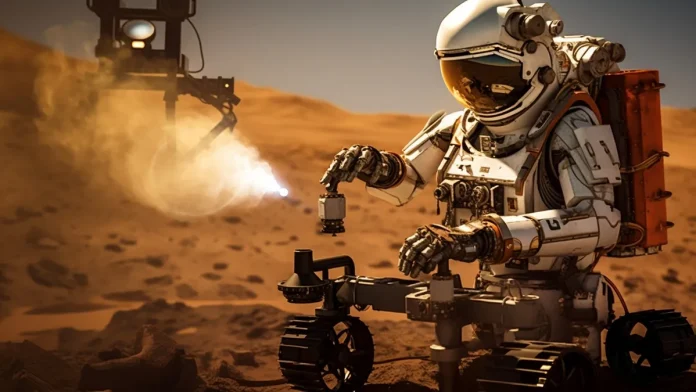Chinese scientists have achieved a significant breakthrough in Martian exploration by developing an AI-driven robotic chemist capable of synthesizing and optimizing catalysts for the oxygen evolution reaction from Martian meteorites. This innovation is poised to provide an efficient and energy-conserving solution for oxygen production on Mars, a critical aspect for sustaining human life on the red planet.
The robotic chemist employs a sophisticated machine-learning model to autonomously navigate through an extensive database, swiftly identifying the optimal catalyst formula from a staggering pool of over three million possible compositions. This AI-driven approach not only streamlines the catalyst discovery process but also showcases the potential of artificial intelligence in advancing the field of chemical synthesis for extraterrestrial exploration.
The study detailing this groundbreaking development was recently published in the prestigious journal Nature Synthesis, highlighting the scientific community’s recognition of the significance of this achievement. The researchers assert that the successful application of AI in automatically developing new materials is a key milestone, particularly in the context of Mars exploration.
Living on Mars necessitates the ability to produce essential chemicals, such as oxygen, from local resources. This task, however, poses considerable challenges. The AI-driven robotic chemist offers a promising solution by demonstrating its capability to efficiently synthesize catalysts crucial for oxygen production.
The findings of this study indicate that AI can play a pivotal role in automating the synthesis of chemicals and materials necessary for various aspects of Mars colonization, including oxygen generation, base construction, and food production.
Luo Yi, the director of the Hefei National Research Center for Physical Sciences at the Microscale, USTC, emphasizes that the success of this AI-driven approach opens up possibilities for synthesizing a range of chemicals from Martian resources, thereby facilitating deep space exploration by humans. The integration of AI in the exploration of extraterrestrial environments represents a significant step toward overcoming the unique challenges associated with living and conducting research beyond Earth.


